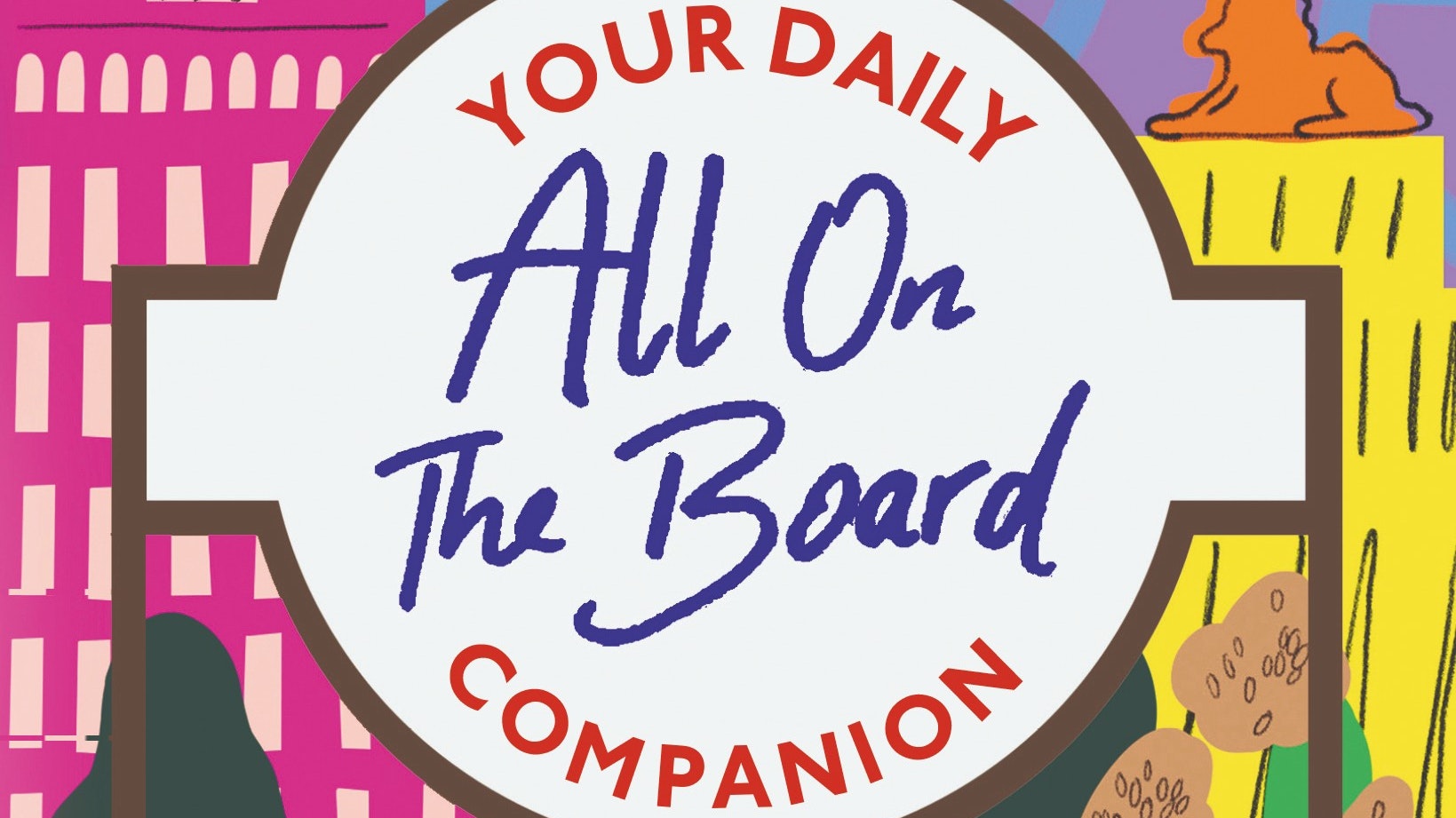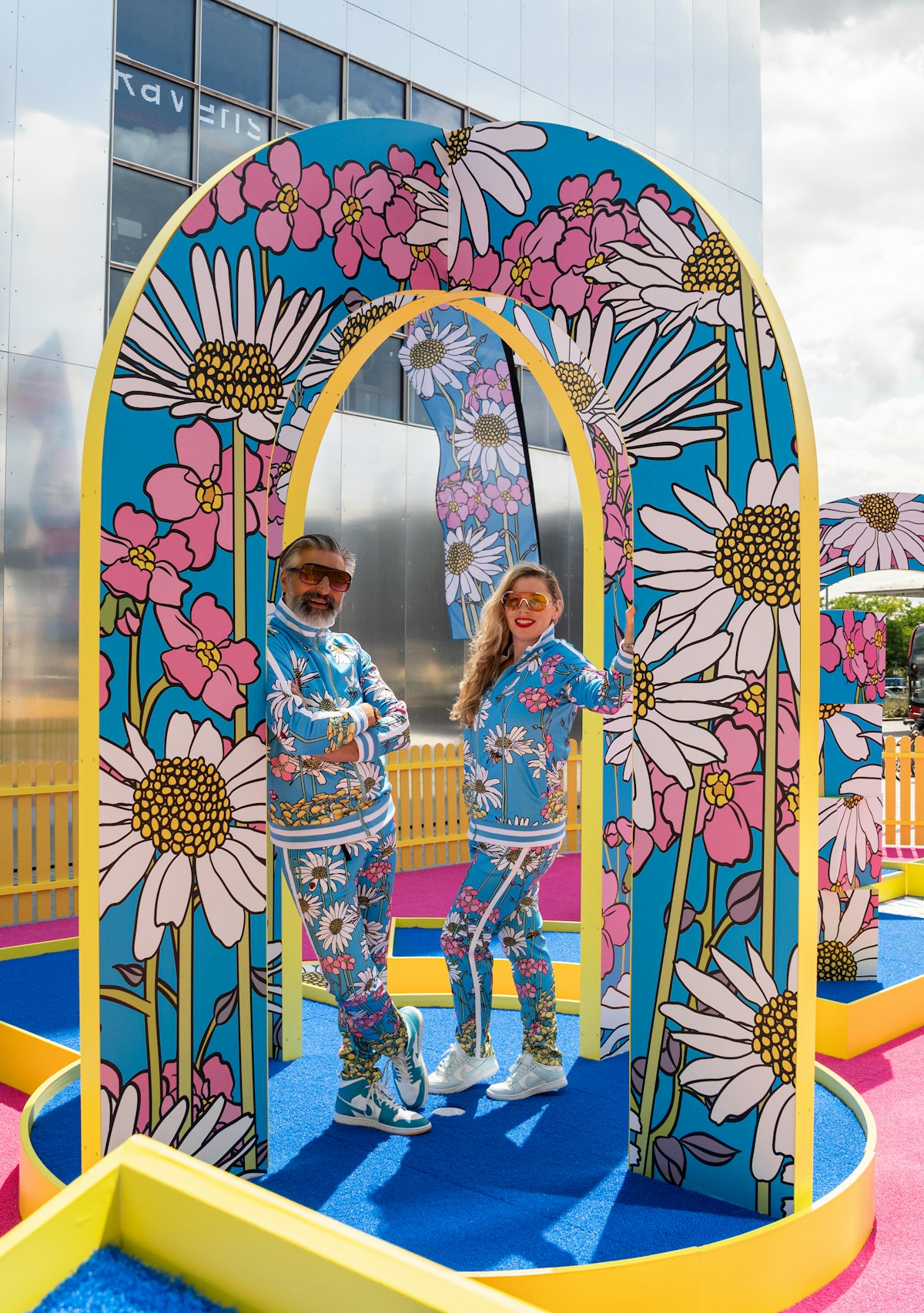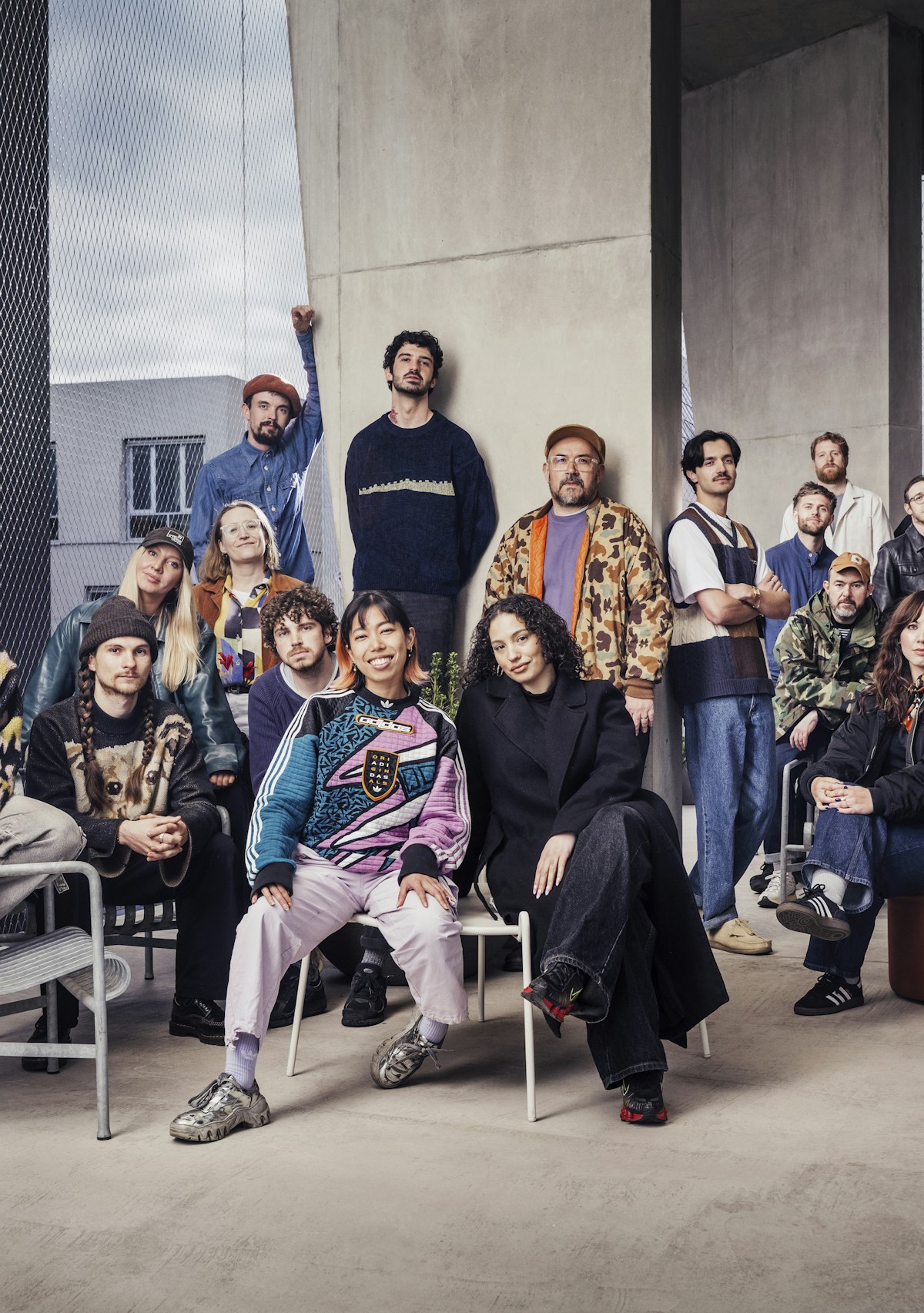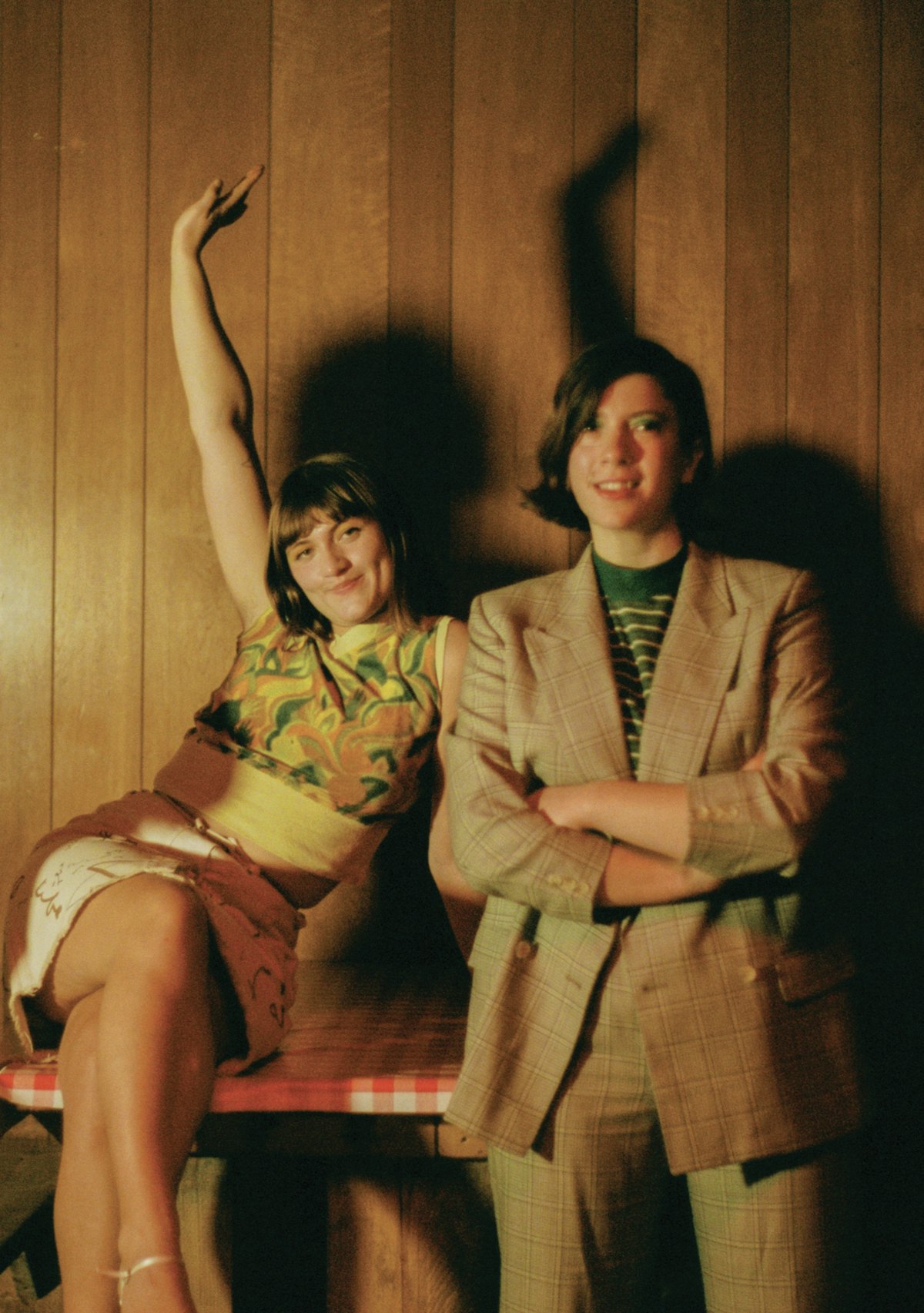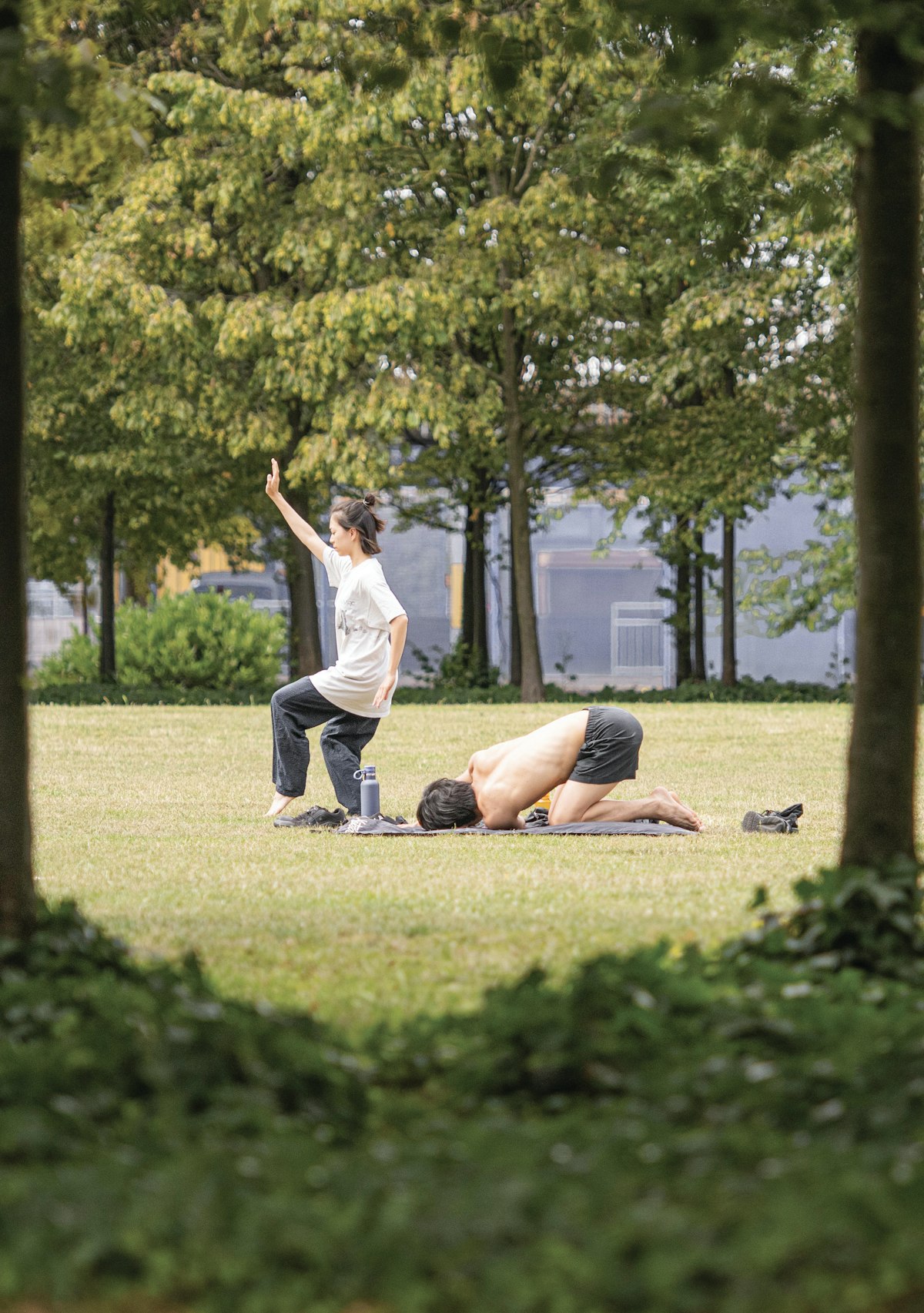
A More Positive Platform
If you were lucky enough to have had tickets for Craig David at the O2 in March 2017 then there’s a distinct chance you might have been one of the first to enjoy the fruits of Ian Redpath and Jeremy Chopra’s public poetry project, All On The Board. During a day shift the pair of TfL customer service assistants decided to spruce up a filthy white board that ordered passengers to “KEEP RIGHT” and replace the command with something a bit more frivolous and fun.
“Make sure you have all your belongings before you start walking away…” it began, kicking off what’s turned into a more than six-year career of pun-filled public poetry, messages of personal empowerment and essays on kindness and empathy designed to make travelling on the underground a more human experience.
Viral fame naturally followed, then a Sunday Times bestselling book, and earlier this year Redpath and Chopra released their second volume of works: All on the Board: Your Daily Companion.
Do you remember what inspired you to write the first post?
The first thing we wrote was a short poem for fans going to a Craig David concert at the O2. We were making jokes together using some Craig David song titles that we knew. It was just a bit of banter to encourage safety and to express excitement for the gig in as humorous a way as we could.
Did you get into any trouble for it?
It was an instant hit! Literally seconds after we put it on display people were taking selfies and laughing around it and stopping to read it. It was a huge risk and it was definitely against the rules, but we didn’t get into trouble at that time.
What came next?
We honestly didn’t expect such a reaction, but since it was such a positive one we decided to keep doing them. It was all about the events at the O2 in the beginning and trying to extend the excitement of the fans. About three or four weeks later we created the social media channels. It seemed like a good way to save and share what it all meant to us and some of the reactions from passengers on the underground.
What did you both do to let out your creativity before this?
Ian: Since I was born I have always liked writing poems, songs and making up stories. They may not be the best in the world, but they are enough for me, and have offered enjoyment and escapism throughout my life. I’m at my happiest with a pen in my hand and a blank notepad. Being creative has been a good tool for me to use during times of depression and anxiety. Writing provides a great distraction against intrusive and negative thoughts, and if I feel like I can’t talk to someone about how I’m feeling or what I’m going through then I can get it all out on a blank page and it becomes evidence for me to look back on to show that I can survive whatever tough times I’m going through.
Jeremy: I’ve always liked drawing or making stuff with my hands and getting lost in my head. I was never one for the less creative subjects at school and, although not a troublemaker, I would often daydream and later write or draw something about it at home. I was working in retail to make ends meet for 10 years before I came to work on the underground and was trying to get into the film industry at the same time. I was a freelance runner for six years, so would be on sets making teas or driving the talent where they were needed. I was around creatives but not a part of the actual creative decisions. Which was tough. Doing things like this was not something I got into until I met Ian.
These days you use the platform to talk about mental health issues and some of the more complex aspects of being human. How did that happen?
As we were writing and growing, we just decided to extend into more of what makes us tick and our mental health and physical conditions are a huge part of that, so that’s where we went. Again, we didn’t expect it to resonate as deeply as it did, we just wanted to express who we are. Ultimately it helped others and that showed us how important it is to do it, and to do it well.
What personal experiences have led to you discussing these issues in the way you do?
We both live with chronic conditions or have battled our mental health in the past. We both had deep issues with depression, so if we can help in some way to get others through their worst times, we will always try.
How do you get the tone right and gauge the public mood for what you post?
We just try to be true to who we are. We are not about toxic positivity. We don’t expect anyone to be happy all the time – we certainly aren’t. So, we are here trying to navigate the ups and downs like anyone and trying to share it in a way that others can use to get through it with us.
Tell us about how the books came about?
We were contacted by our publisher about including our work as a chapter of a book they had been trying to make for a while, but we had enough material for a whole book and they liked the idea. But this was about a month before the pandemic hit, which caused so many problems that we weren’t sure the book was actually going to come out until a few weeks before it did. But it did. And the rest, as they say, is history. The success of the first book meant we were offered a chance to do another. This time we wrote it from scratch having listened to feedback from the first, as well as wanting to explore deeper ideas than before. We loved the idea of how emotions are different at certain times of the day, so All On The Board: Your Daily Companion is there to help with what you are going through at different times of the day – morning through to night.
How did it feel to have to stop being anonymous and go out and promote what you were doing?
It was a risk. Neither of us had any real idea what the reaction would be. For Jeremy, as someone who lives with social anxiety, it was very much a head-on challenge and still is as every interview or invite comes with the same anxiety. But when you know the result can lead to helping someone else you just get on with it the best you can. We are not that recognizable, so we don’t actually get noticed or stopped by many people at all. At work when we are approached, 99% of the time it’s for directions, so it’s a nice surprise when someone says “thank you for what you write on those boards” or “I love your books”. People are wonderful.
Has the project changed the way you see your community and the people around you each day?
We don’t think we’ve changed at all, really. We go to work every day just as before and create the same way we did before we met each other. All that’s changed to us is the number of people we share it with.
What advice would you give to anyone who’s got an idea like yours but feels too scared to give it a go?
Please just go for it. We created All On The Board from a moment of courage.
